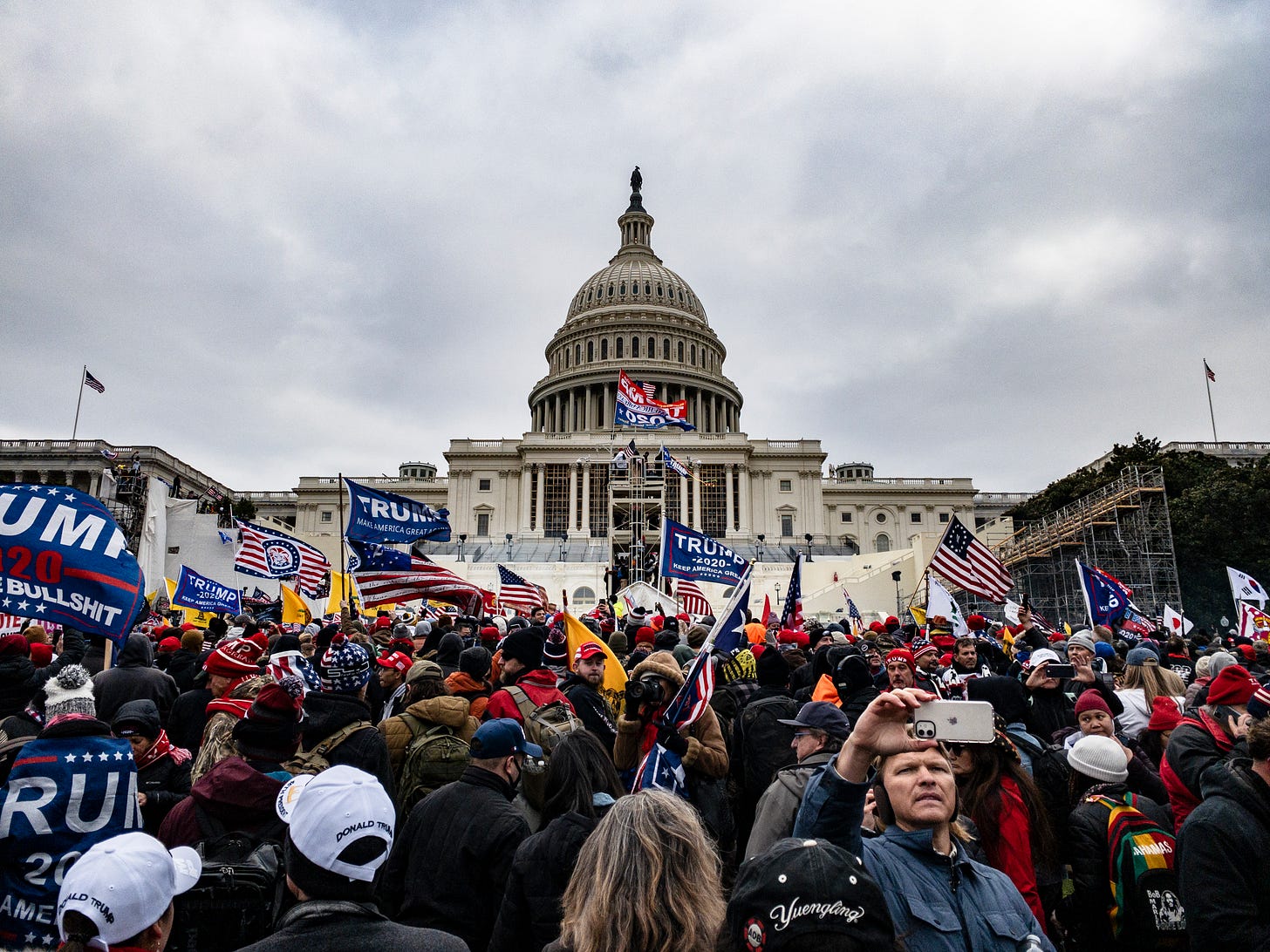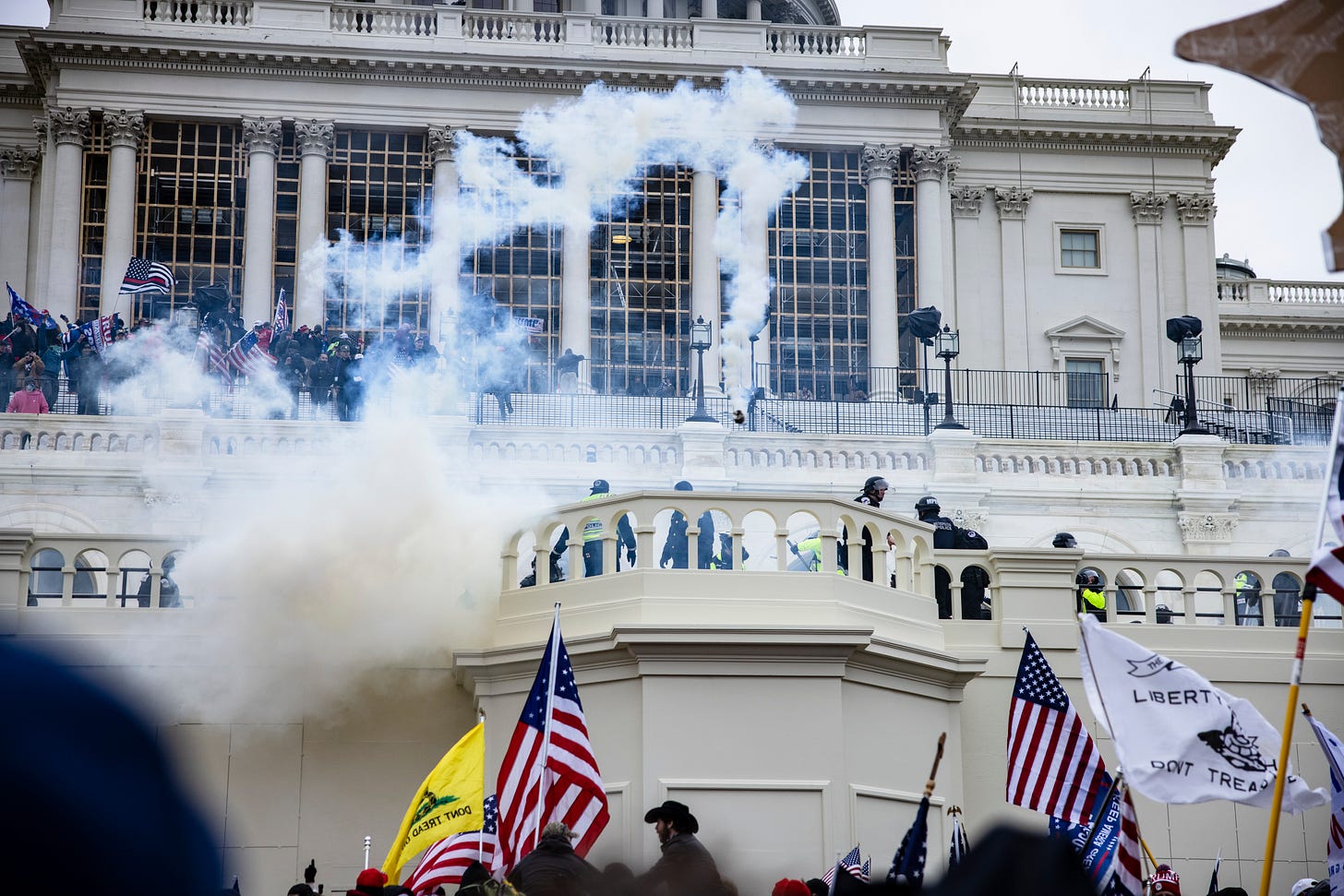I Wish This Were an Election Just About Policy Differences on Tax Cuts or Regulation. But It’s Not.
Tragically, the future of American democracy is also on the ballot.
In the upcoming U.S. presidential election, there are legitimate policy differences between Vice President Kamala Harris and Mr. Donald Trump, over which reasonable people will debate and disagree. For instance, the two candidates have different views on taxation. I can understand why affluent voters might support Trump over Harris. That’s rational, even if I disagree with them. I can also understand why tech entrepreneurs might think that Trump will be better for them regarding regulation, even if I think they’re wrong, because I may value competition more than they do. But that’s an honest policy disagreement. Even on foreign policy, I can follow the arguments for why voters might think that Trump could be a better leader, even if I strongly disagree. In my view, American national interests are best served by a president like Harris, who believes in engagement, allies, multilateralism, and promotion of our democratic values, and not by Trump, an isolationist and unilateralist who does not value allies and often supports dictators over democrats. But that’s still a legitimate policy debate on which Americans can disagree.
What should not be up for discussion, however, is a debate about the democratic rules of the game. Tragically, Mr. Trump and his running mate, Senator J.D. Vance, cannot commit to the democratic rules of the game that have governed American presidential elections for centuries. That is very dangerous.

To have coherent policy debates, all Americans must agree on the democratic rules of the game. A commitment to democracy is one of our most fundamental values. It is an idea that launched our American Republic three centuries ago and, to this day, remains a critical component of our success as a nation. If we lose our democracy, we lose what makes America special and, ultimately, what makes us great.
Imagine watching a football game between two teams that had not agreed on the rules beforehand. It would be complete chaos, and we would never know who won or lost. This sport would eventually disappear, as no one wants to watch a match without rules. The same is true in politics. Everyone who wants to participate in electoral politics must agree on the rules of the game before becoming a candidate, including the agreement to recognize the results after a free and fair election. On January 6, 2021, we tragically witnessed what can happen when everyone does not commit to the same rules of the game. What happens is violence and chaos. That’s an outcome we must avoid after Election Day next month, or four years from now, if Trump is reelected but refuses to step down or allow his successor to be determined by a free and fair election.
Trump has had four years to recognize Joseph Biden as the legitimate, democratically-elected President of the United States but has refused to do so. Just this week, Trump claimed falsely once again that he won the 2020 presidential election. At a rally at Saginaw Valley State University in Michigan on October 3, 2024, Trump stated, “We did win—it was a rigged election.” Senator Vance did, too, giving a “yes” to the question, “Did Donald Trump win the 2020 election?” In his debate with Governor Walz, Senator Vance avoided answering the question about whether he recognized the results of the 2020 election, and instead uttered some truly revisionist and misleading history about how Trump allowed for a peaceful transfer of power.
One can hope that Trump and Vance don’t really mean what they say. After all, politicians on the campaign trail often say things that they don’t later do. On this issue, however, the stakes are too high to wish that Trump simply will do the right thing. Hope is not a strategy. The only way to avoid such threats to our democracy in the future is not to let Trump win this time around.
I have played and coached sports for many decades. Shaking hands with your opponent after losing a game is a standard practice and the right thing to do. In presidential elections, however, it is not just the right thing to do; it’s a necessary condition of democracy. Failure to recognize the results of free and fair elections leads to democratic breakdown and the rise of autocracy. And we know from both history and the present what happens next after autocrats take power – nothing good, oftentimes really bad things for the economy, and sometimes horrific things for security.


It would be easy for Trump to say he lost the election. His base would stay with him. Some new voters might even come his way. It would be even easier for Senator Vance to say that Biden won the last election since his name was not on the 2020 ballot. Vance could cling to some false notion that there were irregularities—like bad referees in a football game—yet still accept the final results. The fact that both Trump and Vance have militantly committed to not recognizing the results of the 2020 presidential election should make voters think twice about supporting them because of their affinities with Trump on other policies. There will be no rational debate about tax cuts or rollbacks of regulation if democracy breaks down. There will be chaos, dysfunction, economic meltdown, and violence. Everyone on both sides of these legitimate policy debates will lose from a breakdown of American democracy.




This piece states the obvious but incredibly important. It is deeply concerning that it needs to be said. Shame and dishonour on the people who have made it necessary to be said 4 years after the atrocious events of Nov 2020-Jan 2021